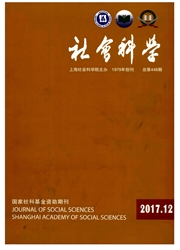

 中文摘要:
中文摘要:
“消遣经济”及其生活方式构成了生计经济下社会整合形式的重要组成部分,也曾是中国农村普遍存在的日常生活图景。这一社会事实为资本主义未产生于中国提供了新的理论解释。当视野扩展至资本主义世界和工业化国家,三种经济形态的理想类型得以区分开来:资本主义兴起时以生产为核心的形态;资本主义成熟期以消费为核心的形态;中国传统农村均衡生产、消费与休闲的“消遣经济”。不同形态下的日常生活形态及其伦理取向存在明显差异。近几十年急剧的社会变迁引发了中国人日常生活形态的巨变,当下突出的特征是生产劳动、工作和消费均有明显增加,休闲明显萎缩并被商业化,相伴而生的是公共社会生活失落、社会整合度降低。应对当下乱局,急需传统乡土社会的休闲、消遣观念和生活态度予以平衡,才能提高社会生活质量。
 英文摘要:
英文摘要:
Recreational economy (Xiaoqian Jingji) and its lifestyle constitute the forms of socialsolidarity against China's centuries of subsistence economy. This traditional everyday-life pattern waswidespread all over China. This social fact leads to a new theoretical approach regarding why capitalismdid not came out in China. Tracing back the historical institutional change, three idea-types of economiesare identified: the formative period of capitalism focus on production, the mature period of capitalism isdominated by consumption, while China's traditional rural lifestyle enjoys balanced production,consumption and leisure: people are contented with current living conditions and enjoy more pastime.Each category is featured with corresponding lifestyle ethics. The dramatic social change of past decadeswitnessed increasing production and consumption, decreasing leisure and social solidarity, which leads tounbalanced lifestyle. To improve the quality of social life and redress the imbalance, traditional values ofleisure and recreation are very necessary to bring back in.
 同期刊论文项目
同期刊论文项目
 同项目期刊论文
同项目期刊论文
 期刊信息
期刊信息
